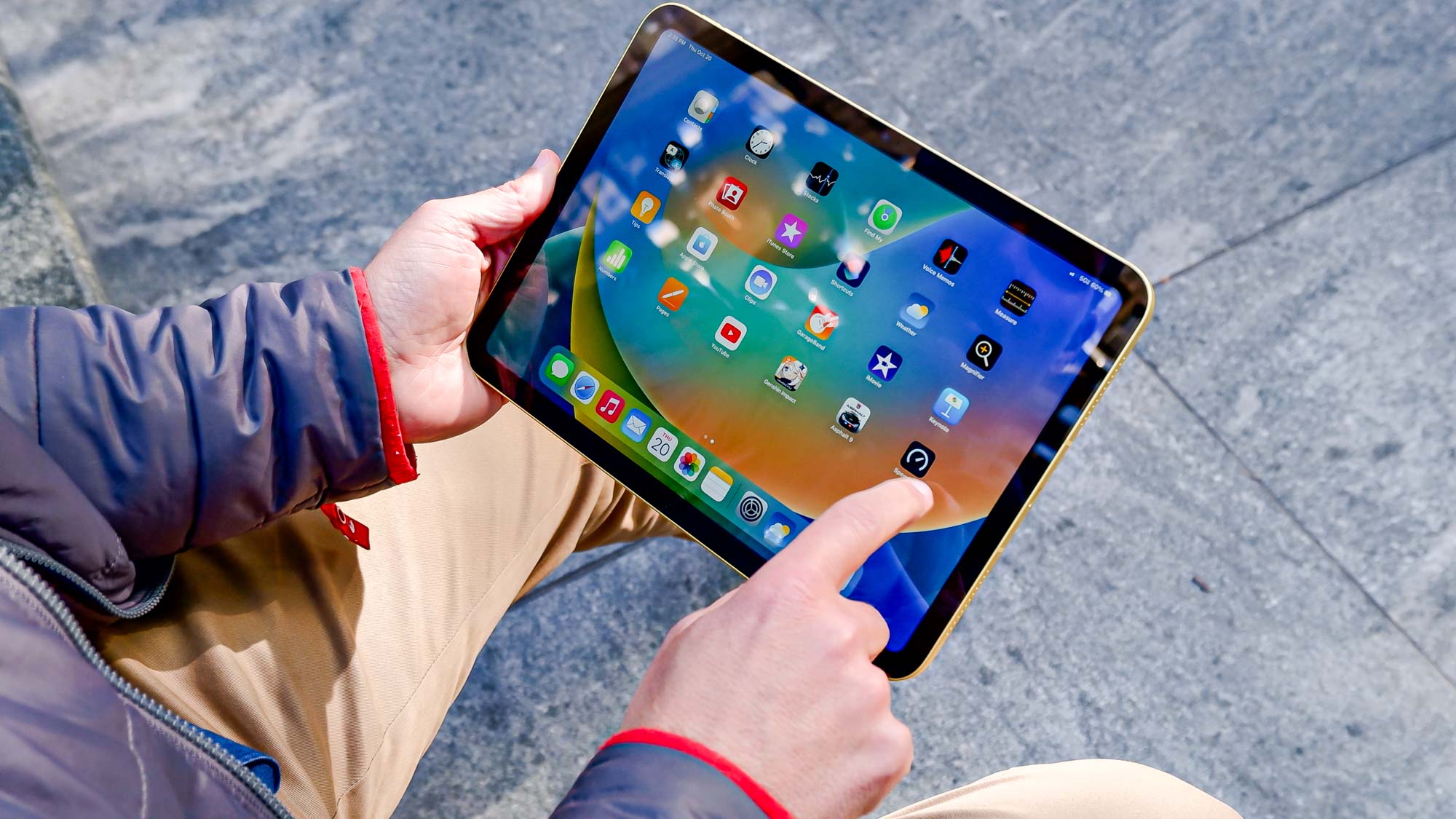Windows 11's big 24H2 update is here: 5 features to try first
Windows 11's big Fall 2024 update is rolling out now, and these are the features to try first
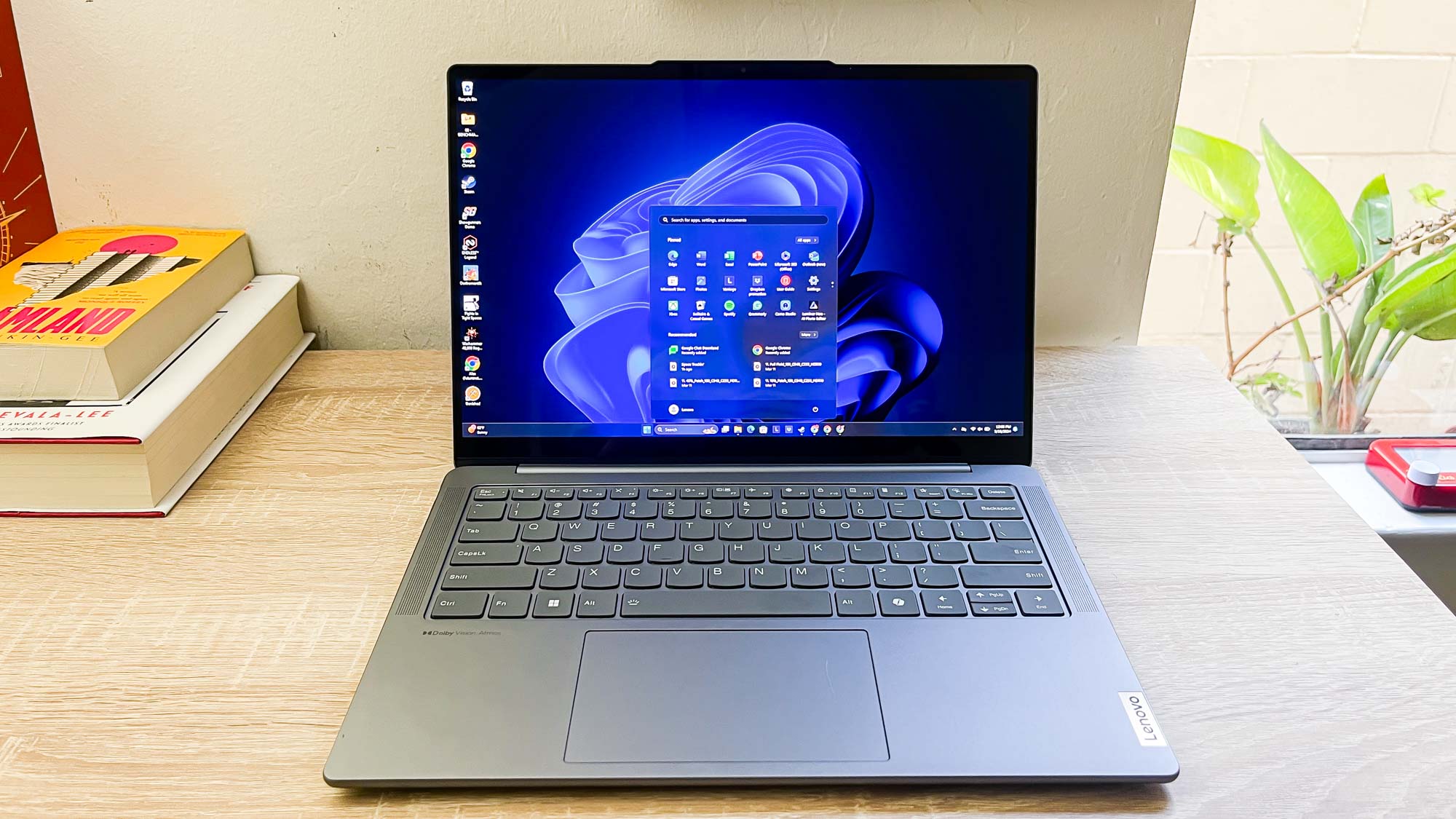
Microsoft has released its big Fall 2024 update for Windows 11, codenamed 24H2, and it brings with it a host of updates and fixes that should make your Windows experience a bit better.
Even if you're a die-hard Windows 11 fan you may not have noticed that Windows 11 24H2 is here, and for good reason: Microsoft staggers the rollout of big updates like this over several weeks or months, so you may not see it unless you're diligent about checking for Windows updates and keep the "Get the latest updates as soon as they're available" setting switched on.
It may even get installed without you noticing—an easy way to check and see what version of Windows 11 you're running is to hit the Start button and type "Windows info," then select "Windows specifications" from the results. This will open the About page of your System settings, where you can see what edition and version of Windows 11 you're running.
If you see version 24H2 listed, congratulations: you've got the big Windows 11 Fall update! There's all sorts of tiny changes and fixes aimed at making Windows better (like Wi-Fi 7 support) as well as some new features to try.
Some of the new features are exclusively available on Copilot+ PCs, like the new Windows Recall feature, Live Captions and some advanced graphics upgrades.
But you don't need a fancy Copilot+ PC to take advantage of lots of new upgrades in the latest version of Windows. No matter what PC you have, here are 5 of my favorite new Windows 11 features you should check out first!
Phone Link comes to the taskbar
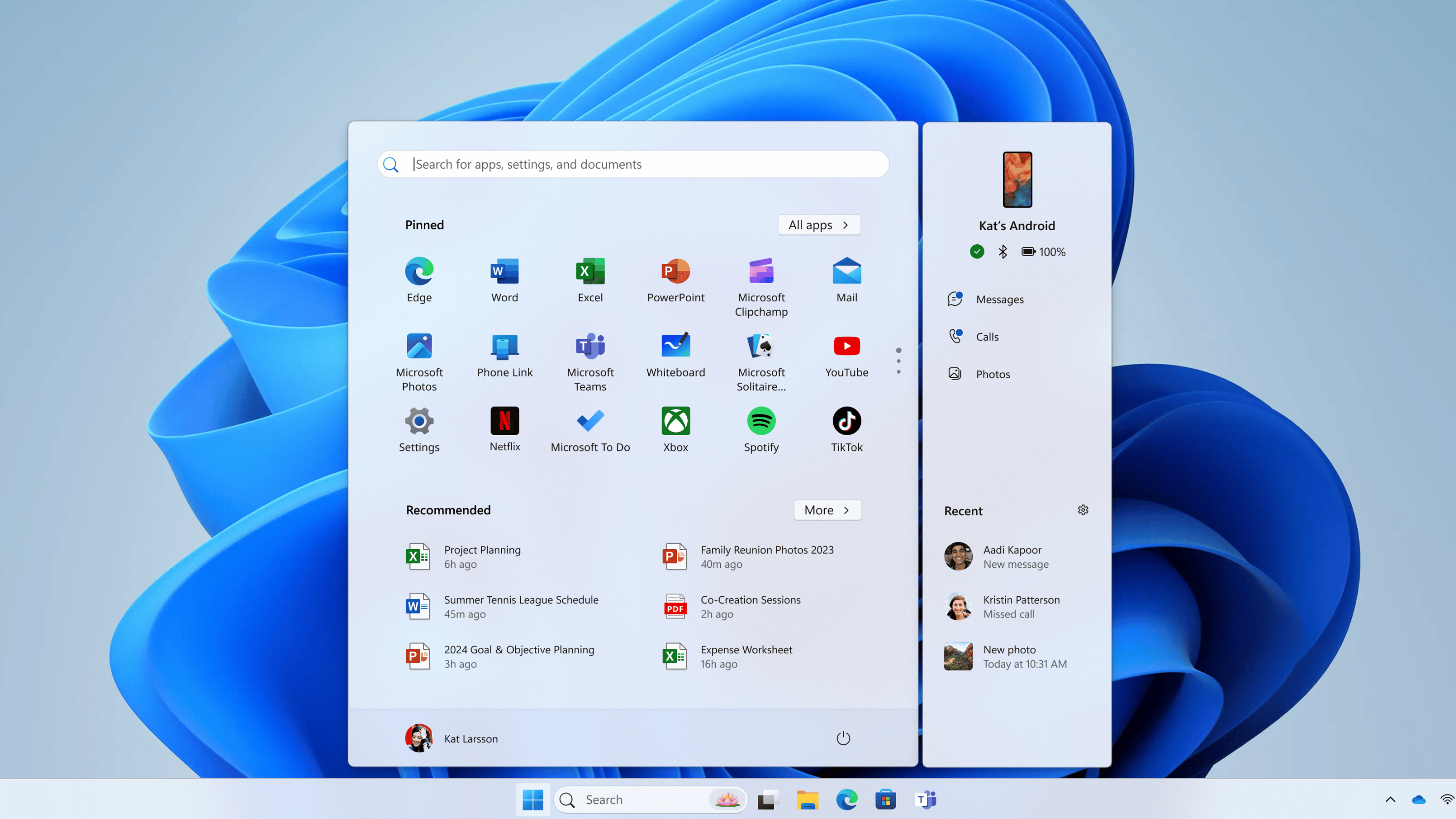
One of my favorite things about using a Mac with my iPhone is the way that Apple makes it so easy to get my text messages across both devices, so I can see them while I'm working without reaching for my phone.
Sign up to get the BEST of Tom's Guide direct to your inbox.
Get instant access to breaking news, the hottest reviews, great deals and helpful tips.
Windows 11 has had an anemic Phone Link app for some time now that lets you wirelessly connect your Android or iOS smartphone to your PC to check messages, but it can't match the interoperability of iPhones and Macs.
However, with the 24H2 update it gets a lot better—if you have an Android phone, at least. Those of us using iPhones are still stuck with just a Phone Link app in the taskbar showing our notifications, but you have an Android device, you can send and receive messages from your Windows 11 PC, remotely browse your phone's files and even see a live status display of your phone's battery, connection status and recent messages in your Start menu. You can even use your Android smartphone's camera as a webcam by digging into Settings > Bluetooth & devices > Mobile devices.
It's basically almost as good as macOS Sequoia's iPhone Mirroring feature, at least if you use an Android device.
Quick Settings expanded
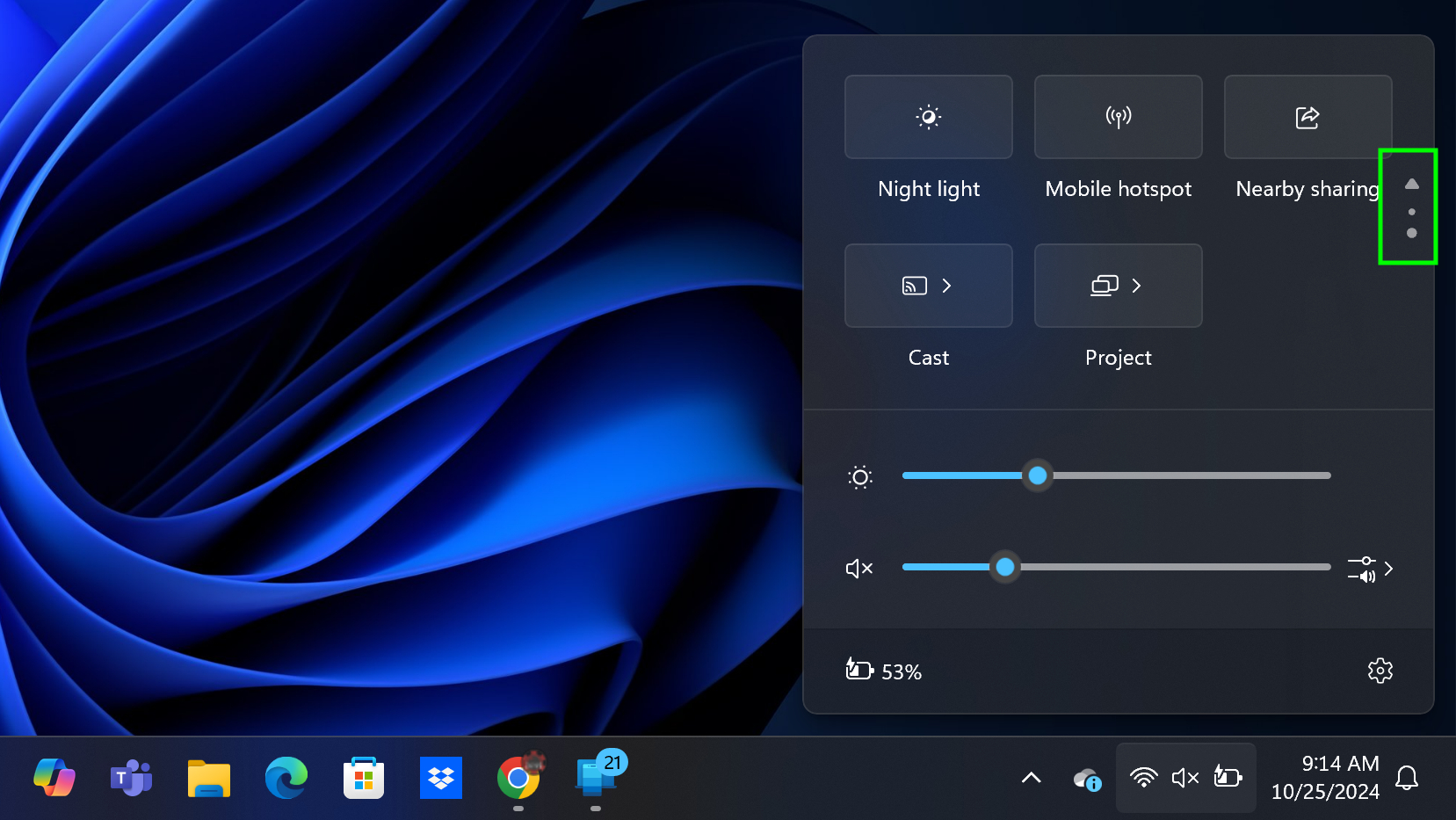
Once you have 24H2 try opening the Quick Settings menu, which you can do by clicking on the Wi-Fi icon in the corner of your taskbar.
When you do, you should notice that the usual simplified interface has been expanded and given pages, which you can scroll through using your mouse or by clicking the arrow icons in the righthand side of the menu.
This change basically gives you easy access to all the tools in your Quick Settings menu, instead of limiting you to just what you put there.
The value is that Microsoft can keep adding tools and you can just scroll down to access them, instead of having to dig into the "Edit quick settings" tools to add them manually.
One of the new settings you can quickly enable or disable from the Quick Settings menu is Energy Saver mode, another new addition I'll explain next.
New Energy Saver mode
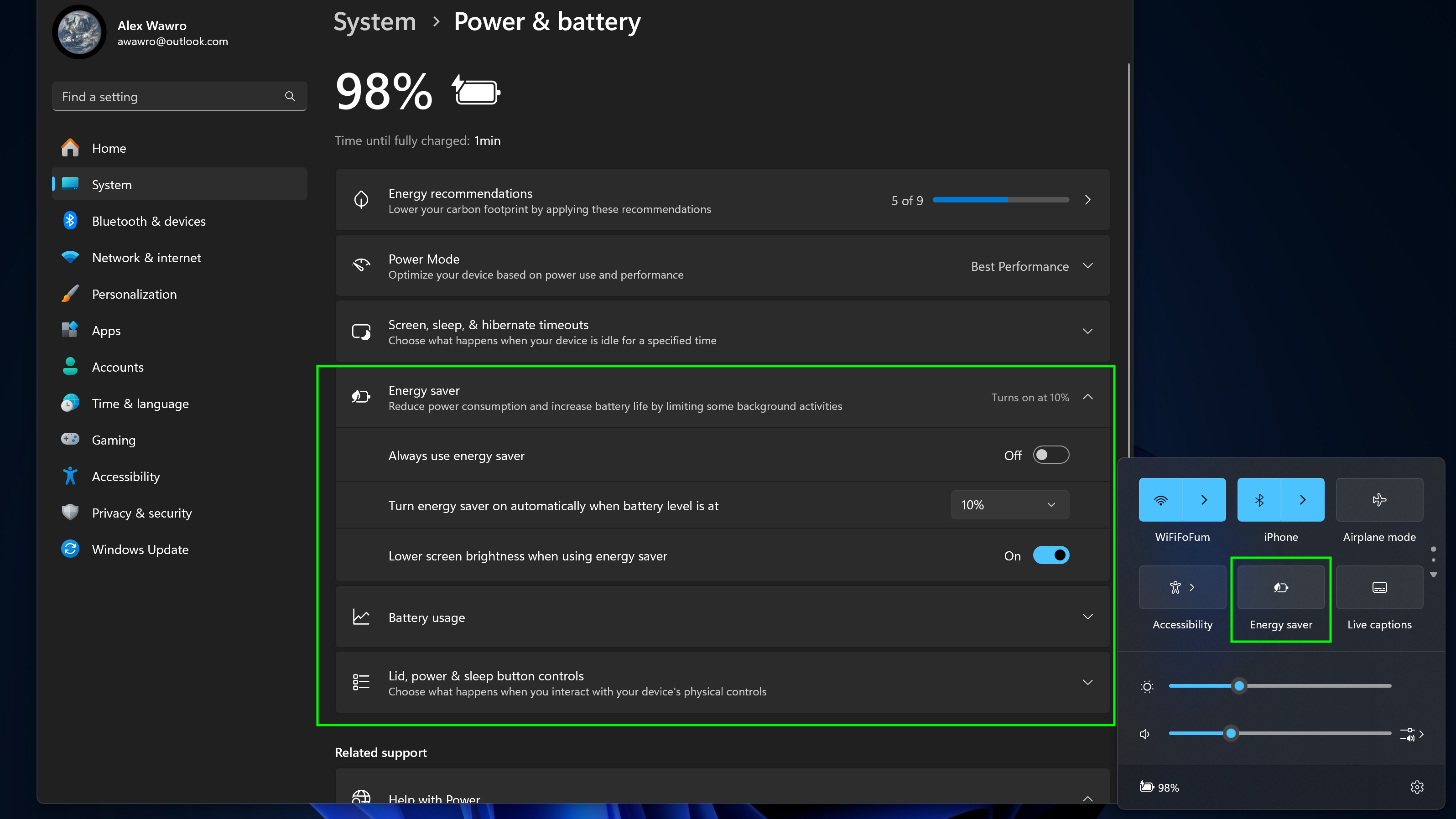
Once you get the 24H2 update you may notice the new Energy Saver button on your Quick Settings menu, which is basically a better version of the existing Battery Saver mode.
The extant Battery Saver in Windows 11 is only available on laptops and, when enabled, tries to reduce power consumption by doing things like dimming the screen and limiting background app activity.
That's now replaced by Energy Saver mode, which is available on both laptops and desktops so you can use it to cut your power bill as well as extend battery life.
This is part of Microsoft's ongoing efforts to make Windows more eco-friendly, and in the Settings > System > Power & battery menu you'll find a wealth of options you can use to fine-tune how much power your device draws when plugged in and when on the new Energy Saver mode.
Wi-Fi refresh
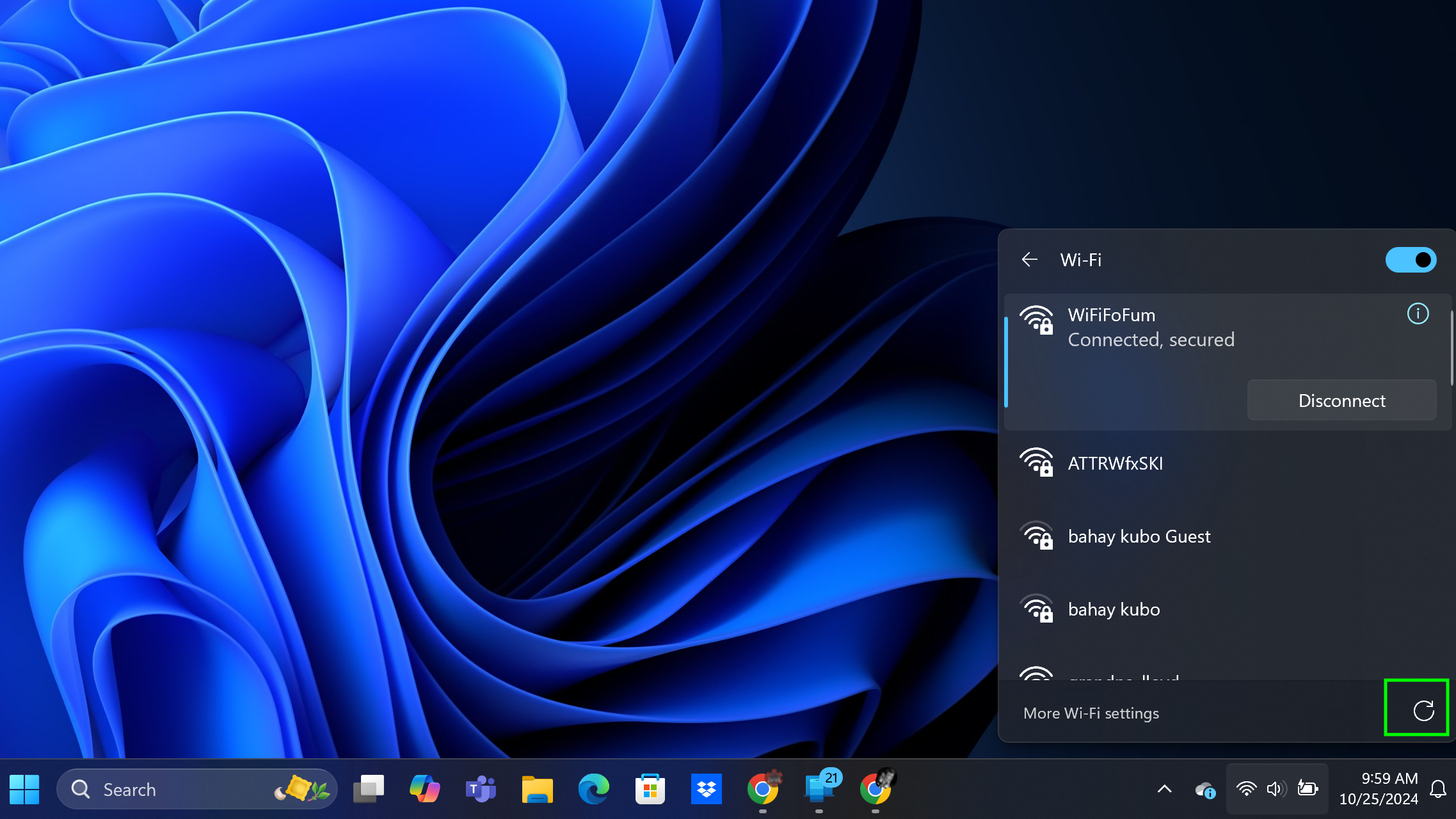
One of the smallest new features that I really, really appreciate is the new button in the Wi-Fi menu on the Windows 11 taskbar that allows you to refresh your view of available Wi-Fi networks.
If that sounds like a minor feature, it is, which is why it's been so incredibly frustrating to be using Windows laptops on Wi-Fi for the past few years. There have been so many times where I've been trying to connect to my iPhone's hotspot in a crowded conference room or train car, only to be frustrated by the deluge of other Wi-Fi networks that fill up my available networks queue.
In the past I've had to disable and enable Wi-Fi on my laptop several times in order to refresh the list of networks so that the one I want becomes available. With this new feature I can just hit the refresh button on Wi-Fi networks whenever I need to — a small but welcome upgrade for Windows.
File Explorer gets some much-needed upgrades
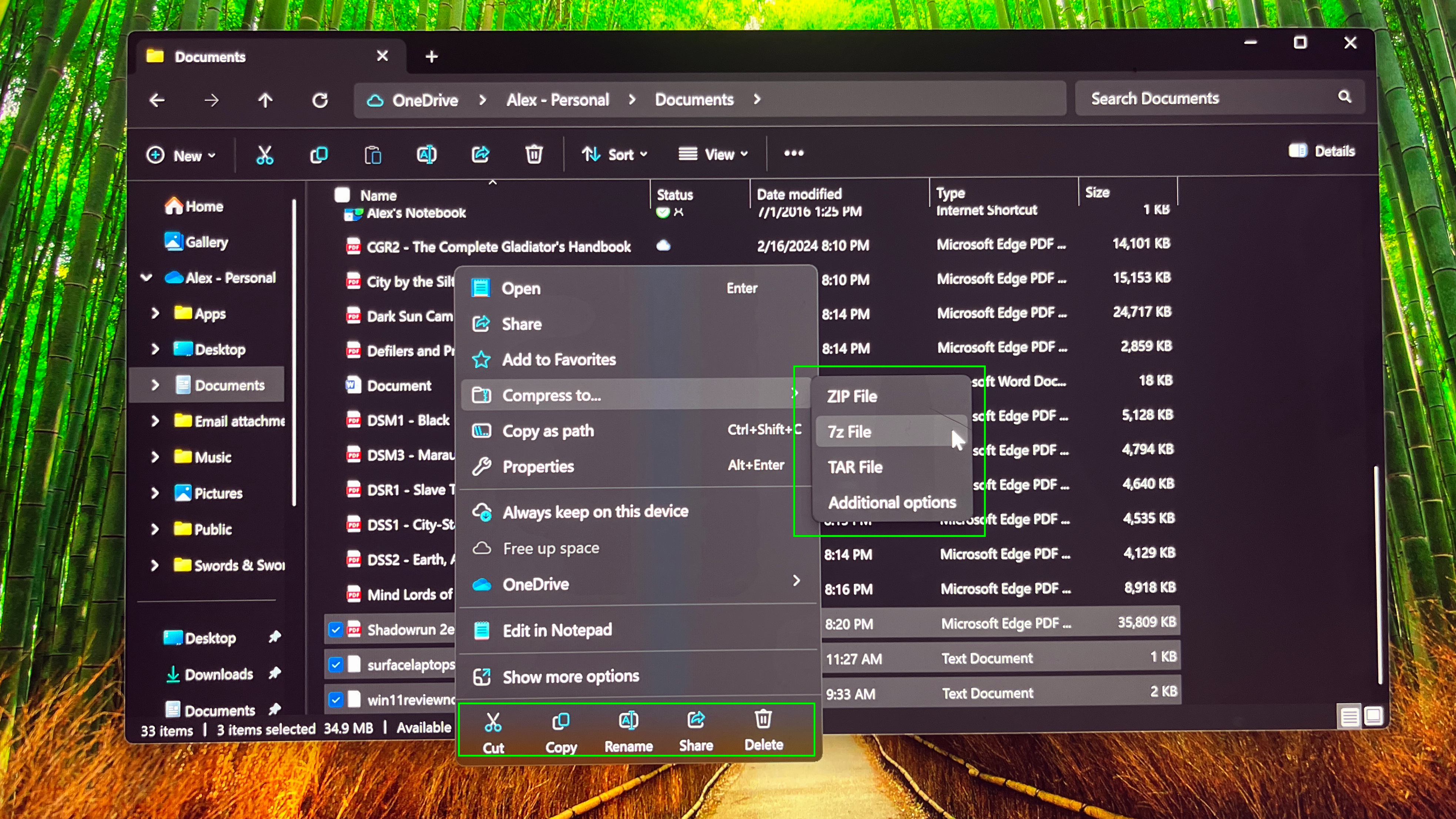
Fire up File Explorer and you may notice a few new features to play with, including a new set of compression tools that let you not just compress to .ZIP but also now .TAR and .7z.
This effectively ends the long dark age we Windows users have been in with regards to file compression. For the longest time we had to download something like 7-Zip every time we wanted to pack or unpack a file in anything but .RAR, but a recent Windows 11 update unlocked Windows' ability to unzip .7z files.
Now that 24H2 has added the option to compress files into these formats as well, you no longer need to go to the web to get a decent file compression tool—though you may still want to, since Windows 11's built-in file compression tools are still significantly slower than something like 7-zip.
While you're fooling around in File Explorer, note another one of my favorite new features in 24H2: text labels on the Cut, Copy, Rename, Share and Delete buttons in the right-click context menu.
Ever since the debut of Windows 11, these functions have been hiding in the context menu as icons, and while I finally learned which was which it took me months to remember.
Now, new Windows 11 users won't have to deal with that headache—text labels are on the new icons, so it's quick and easy to find the Delete or Rename buttons.
These are just a few of the new features available to everyone in Windows 11 24H2, so keep poking around to see what else is new in Windows.
Microsoft is also culling some cruft from the operating system, which is why Windows is losing these 7 features in 2024. You probably won't miss features like Cortana and WordPad, but it's worth knowing about as we gear up for 2025!
More from Tom's Guide

Alex Wawro is a lifelong tech and games enthusiast with more than a decade of experience covering both for outlets like Game Developer, Black Hat, and PC World magazine. A lifelong PC builder, he currently serves as a senior editor at Tom's Guide covering all things computing, from laptops and desktops to keyboards and mice.
